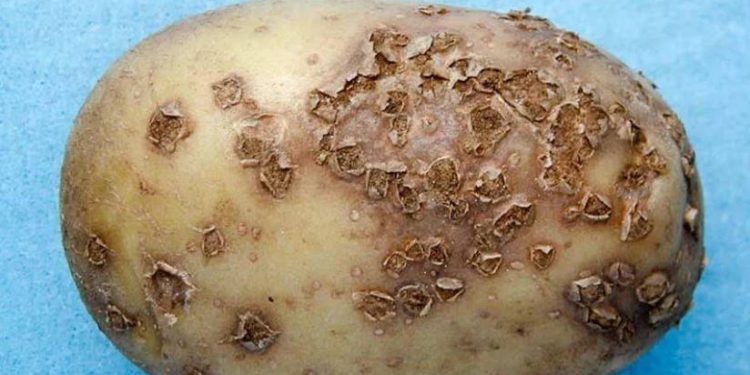Powdery scab is a soil-borne disease caused by Spongospora subterranea that affects potato crops worldwide, leading to significant yield and quality losses. The disease is prevalent in areas with cool and wet soil conditions, and it can persist in soil for up to 20 years.
According to the latest research from the Plant Management Network, powdery scab can reduce potato yields by up to 50%, affecting both the number and size of tubers. In addition, infected potatoes may be deformed, discolored, and covered with scab-like lesions, making them unsuitable for sale or processing.
The disease management of powdery scab involves a combination of cultural, chemical, and biological control measures, such as using certified seed, crop rotation, soil fumigation, and the application of fungicides. Moreover, early detection and monitoring of the disease are essential to prevent the spread of the pathogen and minimize the impact on potato production.
In conclusion, powdery scab is a serious threat to potato yield and quality, and its management requires a holistic approach that combines various control measures. By implementing good agricultural practices and monitoring the crop regularly, farmers and growers can reduce the impact of powdery scab and improve potato production.
#powderyscab #potatoes #plantdisease #soilhealth #cropmanagement







